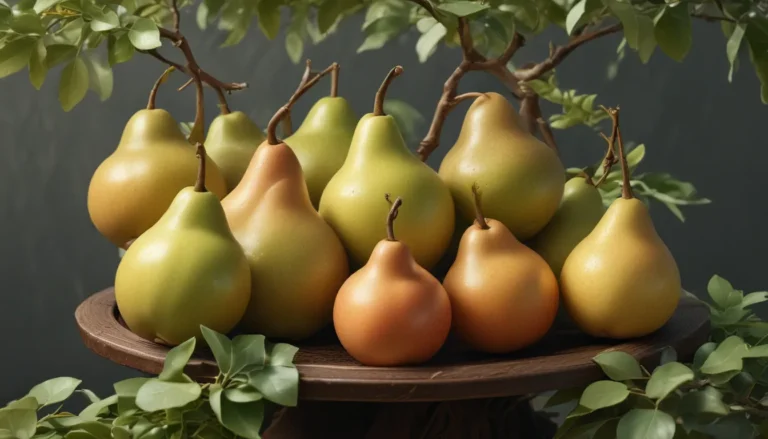The Ultimate Guide to Juniper Herbal Uses: Harnessing the Power of Nature

When it comes to exploring the world of herbal remedies, many people tend to focus on the well-known options like echinacea, overlooking the incredible potential of juniper. Juniper plants are abundant across the Northern Hemisphere, making them easily accessible for foraging right in your own backyard.
Junipers, classified under the Juniperus genus, offer a myriad of uses, both externally and internally, in addition to their value as ornamental and native plant species. This guide aims to shed light on the various aspects of juniper, its historical significance, medicinal uses, potential side effects, preparations, and more.
What You’ll Learn
In this comprehensive guide, we will cover the following topics to help you unlock the full potential of juniper:
- History: Discover the historical uses of juniper across different cultures.
- Best Species for Herbal Applications: Explore the different species of juniper that can be used medicinally.
- Medicinal Uses: Unravel the medicinal properties of juniper and how it can benefit your health.
- Potential Side Effects: Understand the possible adverse effects of juniper and how to use it safely.
- Preparations: Learn how to prepare juniper for consumption and topical applications.
Before delving into the world of juniper herbal uses, it is important to note that the information presented in this guide is for educational purposes only and should not be considered as medical advice. Always consult with a healthcare professional before incorporating herbal remedies into your wellness routine.
History
Junipers have a rich history of culinary and medicinal use that spans across various civilizations. Ancient Egyptian tombs, including King Tutankhamun’s, revealed the presence of juniper berries, indicating their importance in ancient cultures. From being used as a treatment for tapeworms to serving as a substitute for peppercorns in Ancient Rome and enhancing physical stamina in Ancient Greece, juniper has left a lasting impact on human history.
Native American tribes, such as the Apache and Cree, utilized juniper for a wide range of health issues, including seizures, colds, and fevers, showcasing the plant’s versatility in traditional medicine practices. Furthermore, Europeans and Native Americans employed juniper as a remedy for inflammatory conditions and gynecological issues, underscoring its widespread use across different regions.
Best Species for Herbal Applications
While Juniperus communis stands out as the most extensively studied and commercially available species, numerous other juniper species possess medicinal properties that can be harnessed for various health benefits. Species like California juniper, Rocky Mountain juniper, and Eastern red cedar have all been utilized for their herbal applications.
Medicinal Uses
Despite the limited human studies on juniper’s medicinal potential, the European Pharmacopoeia and other official sources acknowledge the therapeutic qualities of juniper essential oil in combating bacterial and fungal infections. The diverse array of compounds present in juniper berries, including sugars, flavonoids, and tannins, contribute to its medicinal value.
Juniper has been traditionally used to address kidney issues and promote diuresis, owing to its terpenes and other bioactive components. Additionally, juniper offers antibacterial, antifungal, and potential antioxidant properties, paving the way for further exploration into its role in health and disease.
Potential Side Effects
While juniper can offer numerous health benefits, excessive consumption or prolonged use of high doses can lead to adverse effects. Possible side effects of juniper include seizures, gastrointestinal discomfort, kidney complications, and alterations in blood pressure and heart rate. Individuals with allergies may experience skin reactions upon topical application of juniper preparations.
It is crucial to exercise caution when using juniper as an herbal remedy and adhere to recommended dosage guidelines to minimize the risk of adverse reactions.
Preparations
Preparing juniper for medicinal purposes involves extracting its essential oil or creating tinctures, teas, or topical applications. To craft a juniper berry extract, combine juniper berries with distilled alcohol like vodka and allow the mixture to infuse for several weeks to enhance its potency. Similarly, blending juniper berries with shea butter and beeswax can yield a soothing topical balm, ideal for addressing skin issues.
Juniper tea, brewed by steeping juniper berries or leaves in hot water, offers a simple yet effective way to incorporate juniper into your wellness routine. Keep in mind that certain juniper species may contain toxic compounds, necessitating proper identification and dosage adjustments under the guidance of a professional.
Conclusion
Juniper’s enduring legacy as an herbal powerhouse underscores its significance in traditional and modern medicine. As researchers continue to unravel the mysteries of juniper’s therapeutic potential, you can harness its natural benefits to support your health and well-being.
Have you explored the world of juniper herbal uses? Share your experiences in the comments below and join the conversation!
For more insights on cultivating and utilizing juniper, check out these informative resources:
- How to Grow and Care for Juniper Shrubs
- Are All Juniper Berries Safe to Eat?
- 13 Juniper Berry Uses in the Kitchen and Beyond
Embrace the healing properties of juniper and embark on a journey towards holistic well-being with this versatile herbal ally.





